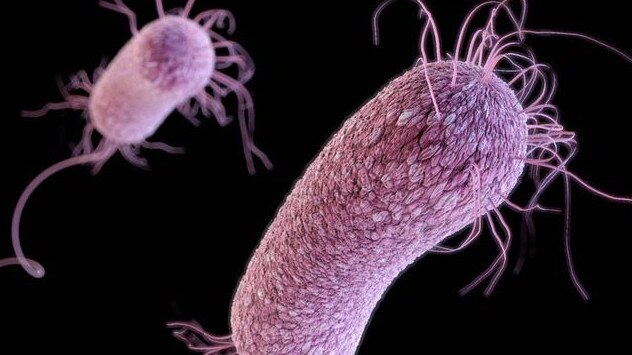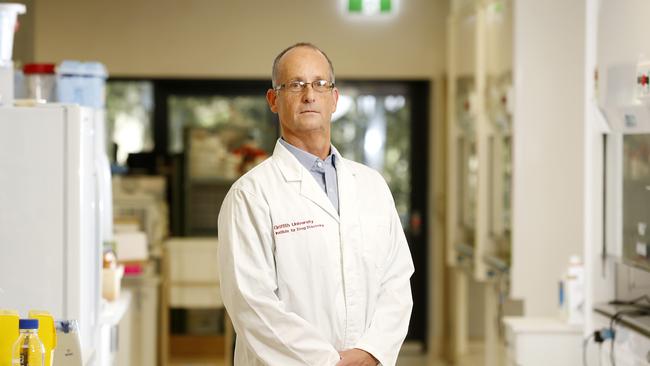Queensland researchers develop potential vaccine for skull-eating superbug
Researchers from Griffith University have created a potential vaccine for a dangerous disease which can cause serious infection and claimed the life of an Aussie man.
QLD News
Don't miss out on the headlines from QLD News. Followed categories will be added to My News.
A pathogen that causes severe infection in immunocompromised people and one that almost claimed the life of a Melbourne father, whose skull was being eaten by the bacterium, now has a potential vaccine.
Griffith University researchers have developed an intranasal vaccine candidate for pseudomonas aeruginosa, a superbug that can cause infections in the lung, blood and other parts of the body.
The potential vaccine uses polymer particle technology, where multiple antigens are combined into one polymer particle, allowing it to target different forms of the stubborn pathogen.

“We selected a wide range of antigens because if you develop a vaccine based on just two antigens, for example, the immune response may not target all the different forms of the pathogen,”
“[The pathogen] is one of the most resilient pathogens in the environment. It can survive extremely harsh conditions and is also a problem for people receiving implant materials.” lead researcher, Professor Bernd Rehm said.
The intranasal form of the vaccine proved to be most effective in the mice trials, producing a 90 per cent survival rate compared to the instramuscal delivery which yielded a 60 per cent survival rate.

The professor said that vulnerable demographics such as immunocompromised people and the elderly would benefit from the intranasal vaccine as “they are not invasive like a needle”.
Pseudomonas aeruginosa was declared a priority pathogen in 2017 by the WHO, with the bacterium resistant to many antibiotics and no human vaccine available.




